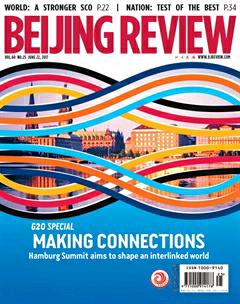Pros and Cons of Rising Yield on Banks’ Wealth Management Products

Many commercial banks have recently raised the yield rates of their wealth management products for fund collecting. According to media reports, the annualized yield rates of such products offered by some banks surpass 5 percent or even 6 percent.
How to interpret the wealth management war among commercial banks?
To start with, it has some positive impact because it is favorable to ordinary investors, who will gain higher earnings through higher yield rates. This will help compensate the depreciation of their wealth caused by low bank deposit rates, hence making commercial banks more attractive to them.
Moreover, although the wealth management war may have increased commercial banks operational costs, it will ensure a steady source of capital for them. Against the backdrop that people are less and less dependent on financial services offered by brick-and-mortar banks, the wealth management war is an important tool for banks to attract more clients and collect funds.
As a matter of fact, commercial banks have no choice but to participate in the war. The key to Chinas ongoing de-leveraging efforts is to eliminate excessive liquidity, a process during which liquidity in the whole fi nancial system —including the banking system—will be tightened. As a result, interest rates will naturally rise.
On one hand, most of the wealth management products offered by commercial banks are not connected to particular investment programs, so it is only a veiled method of attracting deposits, indicating that most commercial banks are now facing liquidity pressure.
On the other hand, the central bank will conduct a Macro Prudential Assessment(MPA) for the second quarter at the end of June, and the whole market is now facing tight supplies of funds amid intensified supervision and de-leveraging efforts. The soaring yield rates of wealth management products indicate commercial banks hunger for funds.
Since 2017, the overnight Shanghai Interbank Offered Rate (Shibor) quotes have risen from around 2 to 2.79 percent, sevenday Shibor from 2.4 to 2.88 percent, and the one-year Shibor from 3.4 to 4.38 percent. This indicates that liquidity in the banking system is now further tightened, and yield rates of wealth management products will continue to rise even after the MPA in June.
Third, since March this year, the China Banking Regulatory Commission has issued several documents, requiring commercial banks to prevent fi nancial and liquidity risks and correct malpractices, imposing great liquidity pressure on banks. The war of wealth management products is also a measure for commercial banks to address possible fi nancial risks.
However, one should not forget that such a war will also bring some negative impacts.
First, it will increase the burden of small- and medium-sized banks and damage their profi tability. Due to higher demand for fund collecting, small and mediumsized banks often offer higher yield rates for wealth management products than large state-owned banks do, further pushing them to a more unfavorable position.
Second, it will likely become a disguised war for deposits, hence undermining normal bank activities of raising deposits and the fi nancial stability of the country.
Therefore, regulatory authorities should require banks to control the size of their wealth management products based on their own conditions. The war of wealth management products should be prevented from lasting too long and damaging the business order of the banking industry.

